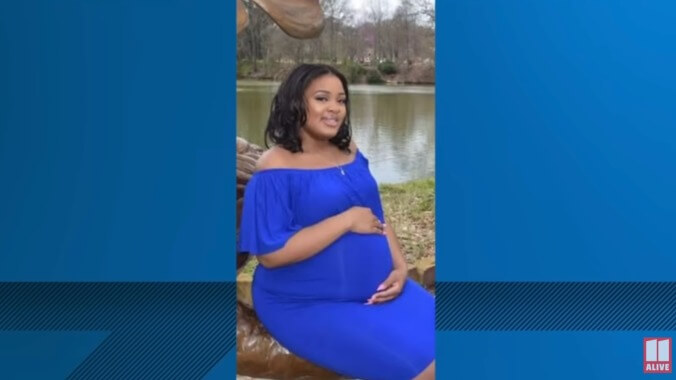Like what you just read? You’ve got great taste. Subscribe to Jezebel, and for $5 a month or $50 a year, you’ll get access to a bunch of subscriber benefits, including getting to read the next article (and all the ones after that) ad-free. Plus, you’ll be supporting independent journalism—which, can you even imagine not supporting independent journalism in times like these? Yikes.
Hospital Still Planning to Deliver Fetus of Brain-Dead Georgia Woman
The tragic case of Adriana Smith suggests that, in many ways, we’re still facing the tip of the iceberg of the absurd legal and ethical quandaries that were created or reinforced by Dobbs v. Jackson Women’s Health.
Photo: Screenshot Politics
An update in the incredibly upsetting case of Adriana Smith, the brain-dead, pregnant woman in Georgia who is being kept alive because she’s pregnant: Smith’s mother, April Newkirk, shared this week that her daughter’s fetus is developing and that Emory University Hospital Midtown plans to deliver Smith via C-section in August. Smith is currently 22 weeks into her pregnancy.
By now, Smith’s story has become national news and the rightful source of national outrage.
Smith first went to the hospital in February with a headache. She was given medication and discharged; within one day, after waking up unable to breathe, she returned to the hospital, learned she had blood clots in her brain, and, within hours, was declared brain-dead, eight weeks into her pregnancy.
Georgia’s laws ban abortion at six weeks. Smith’s family says the hospital told them they didn’t have a say in whether Smith was kept on life support due to her pregnancy, thanks to the state’s abortion ban. “We didn’t have a choice or a say about it,” Newkirk told 11Alive. “We want the baby. That’s a part of my daughter. But the decision should have been left to us—not the state.”
-

-

-

-

-

-

-

-

-

-

-

-

-

-

-

-

-

-

-

-

-

-

-

-

-

-

-

-

-

-

-

-

-

-

-

-

-

-

-

-








































